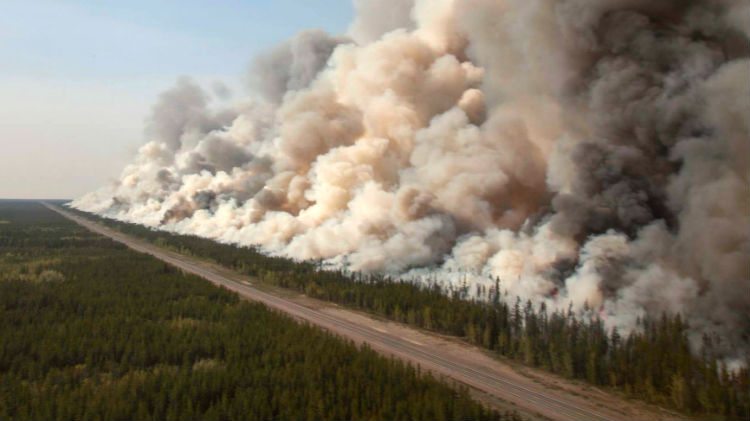The Northwest Territories Department of Health wants residents to invest in air purifiers as smoke descends on northern communities.
Hay River, Yellowknife and other NWT communities spent portions of last week under air quality alerts because of smoke from wildfires in the region. Many residents became accustomed to smoky conditions during last year’s prolonged wildfire season.
Dr Kami Kandola, the territory’s deputy chief medical health officer, believes an air purifier with a HEPA filter is a must-have for residents dealing with exposure to smoke over a period of weeks.
“Wildfires were an issue across Canada last year, and a group – mainly out of BC – did a systematic review of wildfires, smoke, and the best intervention to limit the impact,” Dr Kandola told Moose FM.
“One they came up with was having a clean-air shelter or supply, and that means a type of filtration you can have indoors to filter most of the smoke particles – so that when you’re in that setting, there is less particulate matter. That was the best lesson learned.
“If you have that type of cleaner indoors, it really does reduce your exposure to small particles of smoke. You can find these cleaners in any hardware store or local department store. Look at the box to see how much space it can clean, so it matches your room size.”
More: Air purifier reviews at Consumer Reports
Most good-quality air purifiers cost well over $100, up to $300 or more, so they represent a sizeable investment. Dr Kandola says it’s worth it, to ensure particles from smoke don’t “get trapped deep in the lungs and trigger coughing” or other conditions.
Dr Kandola also took the time to repeat the territory’s standard advice for dealing with smoky conditions.
“Smoke in the air can impact on health, particularly vulnerable populations like children, the elderly, or people with heart and lung disease,” she said.
“Stay well-hydrated with lots of water. You should reduce or reschedule strenuous activities, particularly if experiencing coughing or throat irritation. Keep windows and doors closed, don’t smoke inside, and stay away from people who do.
“If you’re in the car, put the air system on recirculate.
“If you experience symptoms like chest tightness, chest pain, shortness of breath or fatigue, talk to your community health nurse or doctor.”





